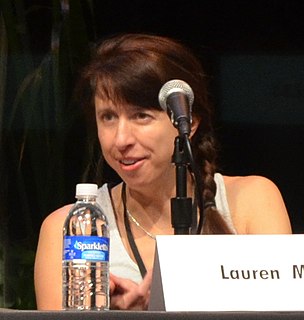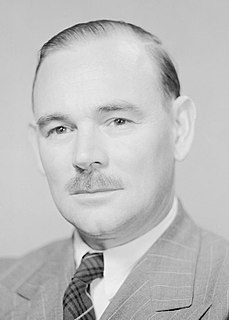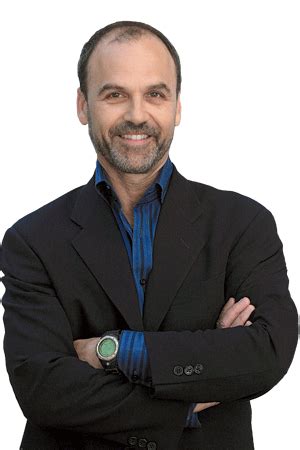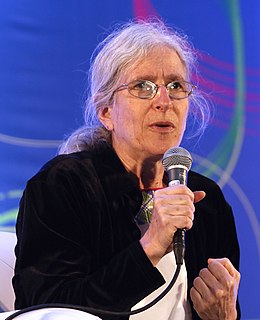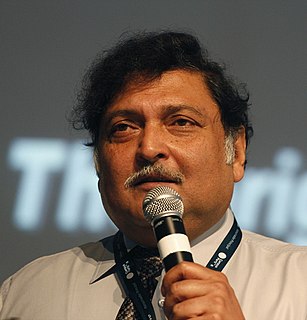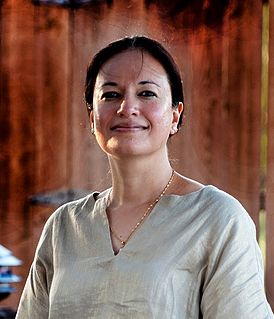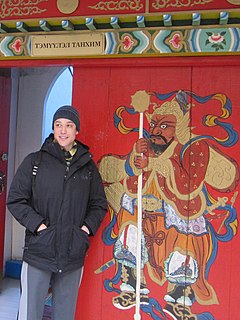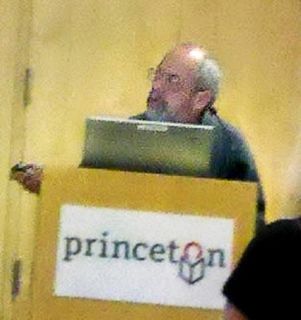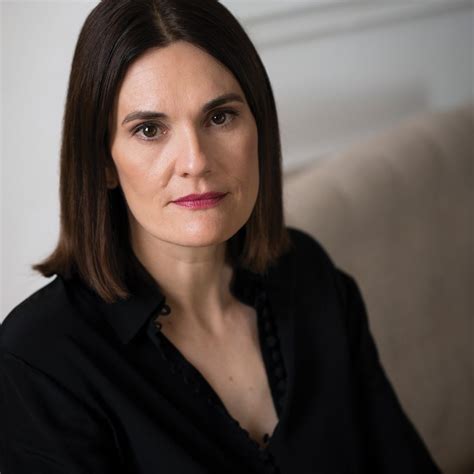Top 1200 Socioeconomic Status Quotes & Sayings - Page 3
Explore popular Socioeconomic Status quotes.
Last updated on November 19, 2024.
I'm actually genuinely optimistic about the United States and what's possible in the United States. And when you're out here, you see Americans across racial and economic and socioeconomic lines working together. And you maybe get a little bit less cynical than when you sit in the seat of kind of the epicenter of it all.
Masterpieces of art possess immense potential to advance a worldview that could help assuage the societal terrors posed by globalization, the most thoroughgoing socioeconomic upheaval since the Industrial Revolution, which has set off a pandemic of retrogressive nationalism, regional separatism, and religious extremism.
Vice President Mondale devoted himself to championing the civil rights of all Americans and worked to ensure that everyone has opportunity to achieve success in their lives regardless of their socioeconomic background or upbringing. We are deeply grateful for his service to the United States and the legacy he leaves.
The reason why the world's leftists give the world' s most horrible murderers a pass is because they sympathize with their socioeconomic goals, which include government ownership and/or control over the means of production. In the U.S., the call is for government control, through regulations, as opposed to ownership.
There's so much stigma around HIV/AIDS. It's a challenging issue, and the people that already have been tested and know their status find it very, very hard to disclose their status, to live with that virus, and to even seek out the kind of information they need. This experience of going to South Africa a decade ago really woke me up to the scale of the HIV/AIDS pandemic in sub-Saharan Africa, how it was affecting women and their children. I haven't been able to walk away from it.
I've always said as a political scientist that "culture" is what we use when we can't explain things. I think it's more about accessibility. Part of the problem is that this is an expensive game [golf]. I know in a couple of places where there are black members, and they come from pretty much the same socioeconomic level that the white members come from.
The dominant feature of the later legislation has been this steady reduction of the status of the native, and, though the intention has been protective, legislation has now gone so far that it may well be asked what purpose or plan there is or what possible outcome there can be from a system that confines the native within a legal status that has more in common with that of a born idiot than of any other class of British subject.
It's not a cold that you can get over. There is no anti-racist certification class. It's a set of socioeconomic traps and cultural values that are fired up every time we interact with the world. It is a thing you have to keep scooping out of the boat of your life to keep from drowning in it. I know it's hard work, but it's the price you pay for owning everything.
Desktop publishing was a big innovation that meant small groups or even poor societies could do their own publication without the capital investment in a major printing press. That's a big difference. Same is true of more advanced technologies - it can offer plenty of liberatory possibilities - can - but whether it does or not or whether it serves for coercion depends on socioeconomic decisions.
It’s notable that the countries that most pride themselves on their commitment to equality, human rights, and democracy (like the United States and the western European countries) are precisely those that, in the late twentieth century, invented a new status (‘illegal’) in order to deprive some of their residents of access to equality, human rights, and democracy.I am honored to lend my name to PICUM’s campaign to end the use of the term ‘illegal’ and to challenge the whole concept of illegality as a status.
The traditional educational theory is to the effect that the way to bring up children is to keep them innocent (i.e., believing in biological, political, and socioeconomic fairy tales) as long as possible ... that students should be given the best possible maps of the territories of experience in order that they may be prepared for life, is not as popular as might be assumed.
It has now become a status symbol among the rich to say that you got ripped off by Bernie Madoff, because everybody is losing money in the market, everybody is, but it makes you special and unique if you lost money because of Madoff. These people don't think it makes 'em look stupid. It continues to elevate their status, they think.
The Republican nominee-to-be, of course, is also a young man. But his approach is as old as McKinley. His party is the party of the past. His speeches are generalities from Poor Richard's Almanac. Their platform, made up of left-over Democratic planks, has the courage of our old convictions. Their pledge is a pledge to the status quo-and today there can be no status quo.
Since the 1960s, we have seen the failure of the melting pot ideology. This ideology suggested that different historical, cultural and socioeconomic backgrounds could be subordinated to a larger ideology or social amalgam which is "America." This concept obviously did not work, because paradoxically America encourages a politics of contestation.
The creation of India and Pakistan were pyrrhic victories for their denizens because the political, socioeconomic, psychological, and culture havoc wreaked by that momentous event is reflected in those pogroms, ethnic cleansing, proliferation of nuclear weapons, poverty, and riots that continue to cause seismic tremors in the Indian subcontinent.
You cannot be less than you are now. You cannot achieve a vibration that is less than the vibration that you have achieved. That's why when someone achieves an empire and then something happens where it is lost or destroyed, they still have the vibration that they've achieved, and the empire will come back again - you see it all the time - because it is the vibrational status that the Universe is responding to, not the financial status.
I think for what success looks like for me, it is a world in which you can look at the achievement scores, the academic scores, of any school anywhere in this country [the USA], and you wouldn't be able to look at the score and determine what the racial makeup or the socioeconomic makeup of that school is simply because of the academic achievement levels.
Where are the leaders who can speak to the idea that it is not alien to American interests, but very much in our socioeconomic interests - not to mention our spiritual health - to integrate immigrants, that our nation functions best when we welcome newcomers and help them participate fully in our society?
One of the things is that I've been very comfortable in every situation starting ministry in the inner city and ministering in places - Washington, D.C., feeding the homeless, the hurting, going to broken boys and girls. So culturally I understood all different aspects of life - from extremely wealthy to extreme poverty, socioeconomic differences, ethnic differences.
All people share the same desire to be treated equally. We all go through similar emotional journeys from love to hate, rejection to acceptance. I think the most important thing for dance right now is to allow for more empathy and understanding between people of different races and socioeconomic statuses. In our society we need to build bridges.
It doesn't need to be deep and it doesn't need to be a 65-point plan, but just to give some concrete examples of how this economy is going to work for the people that feel right now it's not working for them, and then finally to get to central tension of this campaign. This is a presidential campaign where you have Americans now who want to see change. And Hillary Clinton is the status quo. How can she be both status quo and change?
All these walls that keep us from loving each other as one family or one race - racism, religion, where we grew up, whatever, class, socioeconomic - what makes us be so selfish and prideful, what keeps us from wanting to help the next man, what makes us be so focused on a personal legacy as opposed to the entire legacy of a race.
Women must see that there can be no liberation for them and no solution to the ecological crisis within a society whose fundamental model of relationships continues to be one of domination. They must unite the demands of the women's movement with those of the ecological movement to envision a radical reshaping of the basic socioeconomic relations and the underlying values of this [modern industrial] society.
Male domination, and the low and stigmatised status of women, cause teenage girls to engage in punishment of their bodies through eating disorders and self-mutilation. There is increasing evidence that woman-hating Western cultures are toxic to girls and very harmful to their mental health. It is, perhaps, not surprising, therefore, that there seem to be some girls baling out and seeking to upgrade their status.
By my monastic life and vows I am saying no to all the concentration camps, the aerial bombardments, the staged political trials, the judicial murders, the racial injustices, the economic tyrannies, and the whole socioeconomic apparatus which seems geared for nothing but global destruction in spite of all its fair words in favor of peace.
Competition has never been more threatening than it is now. Innovative thinkers challenge the status quo in their organizations. They are often viewed as "troublemakers." They threaten the defenders of the status quo. So competition within an organization can also be brutal. The most effective leaders overcome "the ideology of comfort and the tyranny of custom" by being change agents themselves. They encourage and reward innovative thinking. I have observed that people only resist changes imposed on them by other people.
Once a nation's population becomes prosperous and secure, for example through economic security and universal health care, much of the population loses interest in seeking the aid and protection of supernatural entities. This effect appears to be so consistent that it may prevent nations from being highly religious while enjoying good internal socioeconomic conditions.
Well, it's always, though, safer in politics to avoid risk, to just kind of go along with the status quo. But I didn't get into government to do the safe and easy things. A ship in harbor is safe, but that's not why the ship is built. Politics isn't just a game of competing interests and clashing parties. The people of America expect us to seek public office and to serve for the right reasons. And the right reason is to challenge the status quo and to serve the common good.
Every president to hold office has espoused some version of Americanism - the truths that we hold self-evident, even when those truths are not always in evidence. But for all their grand rhetoric and mostly good deeds, none was able to seal the deal on the trifecta of equality, plurality and socioeconomic ascendancy. Obama has.
I think the media has become incredibly corrupt. We used to have a profound tradition of investigative journalism in the United States. Some journalists were real heroes, such as Bob Woodward who helped uncover the Watergate scandal. But today he is leading the opposite charge, trying to bring down the careers of people and score easy victories. In other words, those who used to bust the status quo have now become the status quo.
The 1986 act didn't turn illegal immigrants into citizens on the spot. It granted temporary resident status only to those who could prove they had resided continuously in America for five years. After 18 months, their status could be upgraded to permanent residency, and only after another five years could they become U.S. citizens.
It's an unhealthy habit to say that life is what you make of it, and if you want to be happy, then you can be happy. That's just rubbish, basically. Life is about luck and it's about circumstances and socioeconomic conditions and all the rest of it, but you know, you can also make choices. It's about spirit and generosity and all the other things, too.
The status quo is a product of our culture or our culture is a product of the status quo - I'm sure which is the effect and which is the product - there is probably a feedback loop there that is mutually reinforcing. But we have a culture that says "Hey, look around. This place called Earth was created for you and you can do anything you want with it."
It used to be that wealthy people were the leisure class, and having time off was a status symbol. That's switched now: being busy and overworked is the reality for many white-collar workers, and there's a kind of perverse currency to that, competitive busy-ness. At the other end of the income scale, there's a swath of lower-wage workers who are underemployed or unemployed, with too much unwanted leisure, and zero status for that. For shift workers, devices mean they're accessible in ways they weren't before, susceptible to that call from the boss to log more hours.
A lifestyle involves a cluster of habits and orientations, and hence has a certain unity - important to a continuing sense of ontological security - that connects options in a more or less ordered pattern. (...) [T]he selection or creation of lifestyles is influenced by group pressures and the visibility of role models, as well as by socioeconomic circumstances.
My background is in arts education and we know, absolutely for a fact, that there is no better way for kids to learn critical thinking skills, communication skills, things like empathy and tolerance. This is true across every boundary, across cultural boundaries, across socioeconomic, it's a great leveler in terms of unifying our world.






